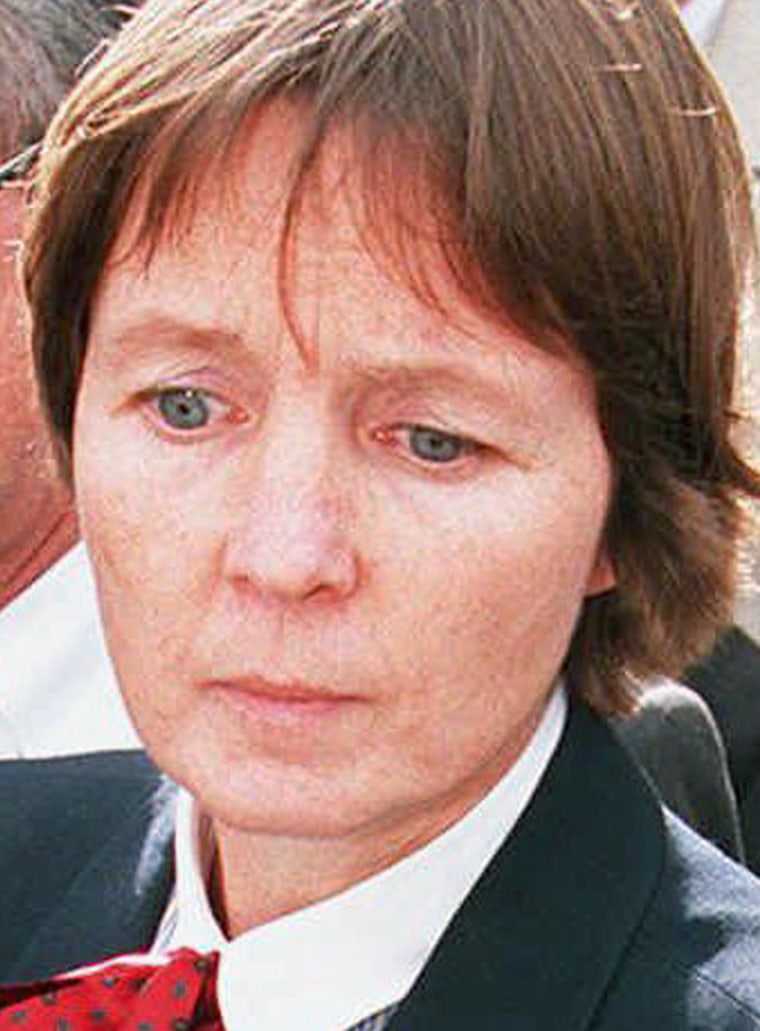The lawyer at the center of the deal that will spare serial bomber Eric Rudolph’s life has helped keep other big-name defendants off death row — including Unabomber Ted Kaczynski.
Judy Clarke has been described as a “one-woman Dream Team” by a colleague who helped her defend Susan Smith, the South Carolina mom who avoided a death sentence after being convicted of drowning her two little boys in 1995.
Clarke helped Kaczynski cop a plea and avoid a death sentence, and on Friday, Rudolph followed suit, agreeing to plead guilty to the deadly 1996 Olympic park bombing in Atlanta, a fatal 1998 abortion clinic blast in Birmingham and two others in Atlanta in 1997.
Death penalty opponent
A staunch opponent of capital punishment, Clarke works for the federal defender’s office in San Diego, Calif., and is considered one of the nation’s leading death penalty lawyers.
“She just doesn’t believe in the death penalty, so she does everything she can to keep that from happening,” said Doug Jones, who was U.S. attorney in Birmingham at the time of the abortion clinic bombing.
In court, where she typically wears dark suits with floppy bow ties, Clarke showed what appeared to be an easy familiarity with Rudolph. She often leaned over to whisper to him or occasionally put a hand on his shoulder to make a point.
Rudolph, believed to be a follower of a white supremacist religion that is anti-abortion, anti-gay and anti-Semitic, became an almost mythic figure to some in the region as he eluded a 5¼-year manhunt of Appalachian wilderness.
He was captured near a grocery store trash bin in Murphy, N.C., in 2003 and charged with carrying out a string of bombings that killed two people and wounded more than 120.
Clarke’s Southern roots — she grew up in Asheville, N.C., not far from where Rudolph built his bombs — could have helped Rudolph get comfortable enough to make the plea bargain, said Jones, who has known Clarke for years.
“I think she obviously ended up being critical in this case,” Jones, now an attorney in private practice, said in an interview Saturday.
'Tough as nails'
Clarke, who rarely grants interviews, did not return messages seeking comment.
David I. Bruck, who helped Clarke defend Susan Smith, said she is intelligent and “tough as nails” in court, but also has a calming influence on clients.
“She’s straightforward, she’s direct, she’s honest. That’s essential in the process of convincing a client that he should spend the rest of his life in a steel cage,” Bruck said.
A former president of the National Association of Criminal Defense Lawyers, Clarke gained prominence with the Smith case, convincing jurors that Smith did not deserve to die for drowning her sons by strapping them in a car and driving it into a lake. She donated her $83,000 fee for the case to a group that defends the poor in capital cases.
Before an Alabama judge appointed her to represent Rudolph, Clarke was assisting with the defense of Zacarias Moussaoui, the only U.S. defendant charged in the Sept. 11 terrorist attacks.
Rudolph will receive four consecutive life terms if judges agree to the plea deal in hearings set for Wednesday. He could be sent to the same maximum-security federal prison in Colorado that houses Kaczynski.
Stashes of explosives
Rudolph directed authorities to his stashes of about 250 pounds of stolen dynamite and a bomb in western North Carolina — information that helped prompt prosecutors to make the deal.
His powerhouse defense may also have played a part in the government’s decision, Bruck said. Clarke teamed up with defense lawyers Michael Burt, an expert in challenging forensic evidence, and Bill Bowen, a former state appeals judge from Alabama.
“I’m sure the government in its calculations had to take into account that this was going to be a fair fight,” he said, noting that in many capital cases in state courts, defense attorneys are far less experienced.
Rudolph still must tell judges enough about the crimes to prove he really committed the bombings, though he isn’t under any apparent requirement to explain how or why he launched a string of bombings that terrorized the South.
Emily Lyons, a nurse who was critically injured in the Alabama bombing, is troubled by the fact she may never know what really happened. Rudolph’s remote-controlled bomb, which prosecutors say was housed in a green toolbox disguised with fake greenery, blasted away Lyons’ memory of that day as it ripped apart her body.
“I have no concept of what a bomb does except for what happened to me,” Lyons said in an interview. “I want to know what happened. I want them to piece the day together for me.”
